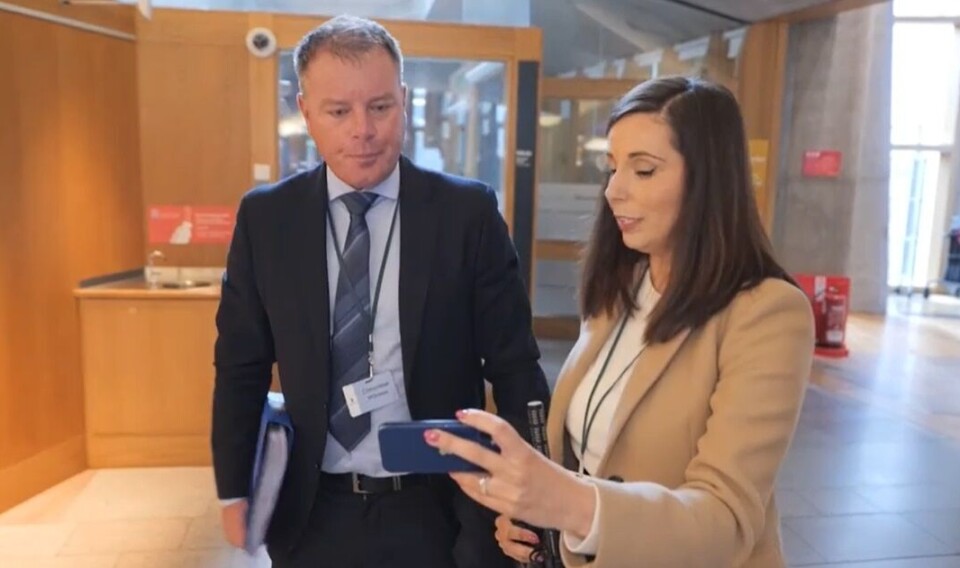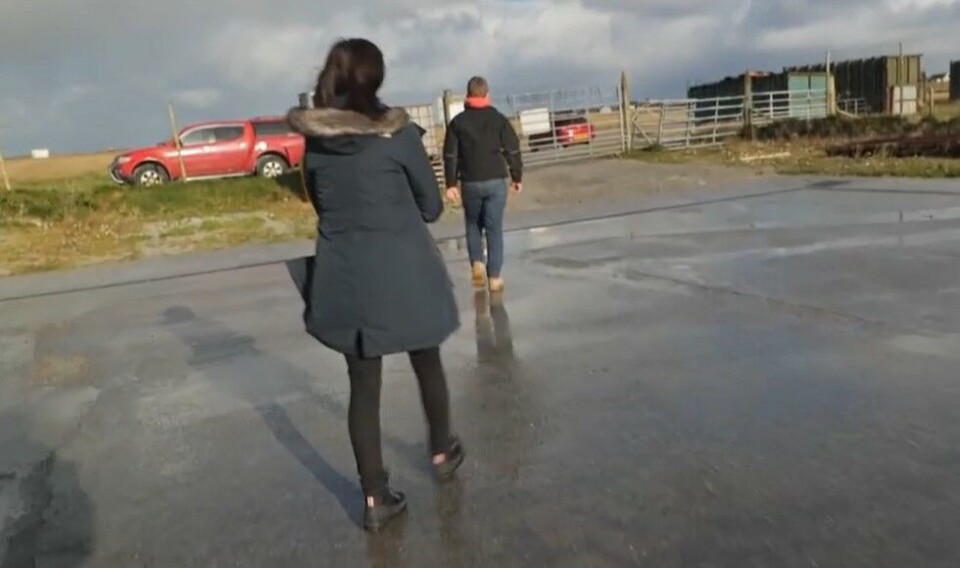
Mowi Scotland chief disappointed by decision to bury morts
But move was the commonsense choice in the circumstances, Hadfield tells TV reporter
Mowi Scotland boss Ben Hadfield has told ITV News that the
company was “really disappointed” to see that a firm it uses to dispose of salmon mortalities had allegedly buried some fish after permission to do so had been
rescinded by authorities. The company should have used a fish waste dryer, but
this was said to have been temporarily out of use.
“We’ve taken that up with them, we were assured that it was very temporary and it only occurred because it was a choice between making a potential discharge to the atmosphere and causing an odour or managing it sensibly by burying it while the plant was down,” the salmon farming executive told ITV Scotland reporter Louise Scott at the Scottish Parliament yesterday.
“I will not condone it, but I think they made a commonsense decision to bury a small amount while the plant was down and incapacitated and hence once the plant was working then they went back to routine measures.”
Derogation withdrawn
Yesterday, The Times was first to publish news on its website that activists had filmed workers at North Uist company Whiteshore Cockles burying salmon on the site in May this year, several months after a derogation that allowed the firm to do so had been withdrawn. The story was given to the newspaper by multi-millionaire Dale Vince, who owns renewable energy company Ecotricity and funded the activists’ trip to North Uist.
News of Whiteshore Cockles' alleged actions came just days after claims by campaigning charity Animal Equality UK that another salmon producer, Scottish Sea Farms, had removed "tonnes" of morts from its Dunstaffnage farm to give a false impression of the sector to MSPs who visited just a few hours later as part of an inquiry into the industry. The Fish Health Inspectorate has since told MSPs that film of the incident showed the alleged cover-up was actually normal working procedure.
Yesterday Tavish Scott, chief executive of trade
body Salmon Scotland, told MSPs that
both they and the sector had been subjected to a “deliberate, orchestrated, and
coordinated campaign by anti-salmon farming extreme activists” – a claim that the timing of Ecotricity’s release of the Whiteshore Cockles story appears to reinforce.

In the ITV report, Louise Scott visits Whiteshore Cockles and is shown the drying plant by father and son Angus and Fraser Macdonald, who run the facility. The men say they are now in the business of processing the morts, not burying them, but refuse to answer Scott’s questions about what happened in May and then escort her off the premises.
Scott is then shown questioning Mowi Scotland boss Hadfield at Holyrood following his appearance as a witness at the salmon inquiry.
“When we showed [Hadfield] the footage, he seemed to know that in May the plant was incapacitated and that’s why the fish were buried,” the journalist says in her TV report.
She ends the report by suggesting more transparency is needed from what she claims is “an industry swimming in profits”.


























































